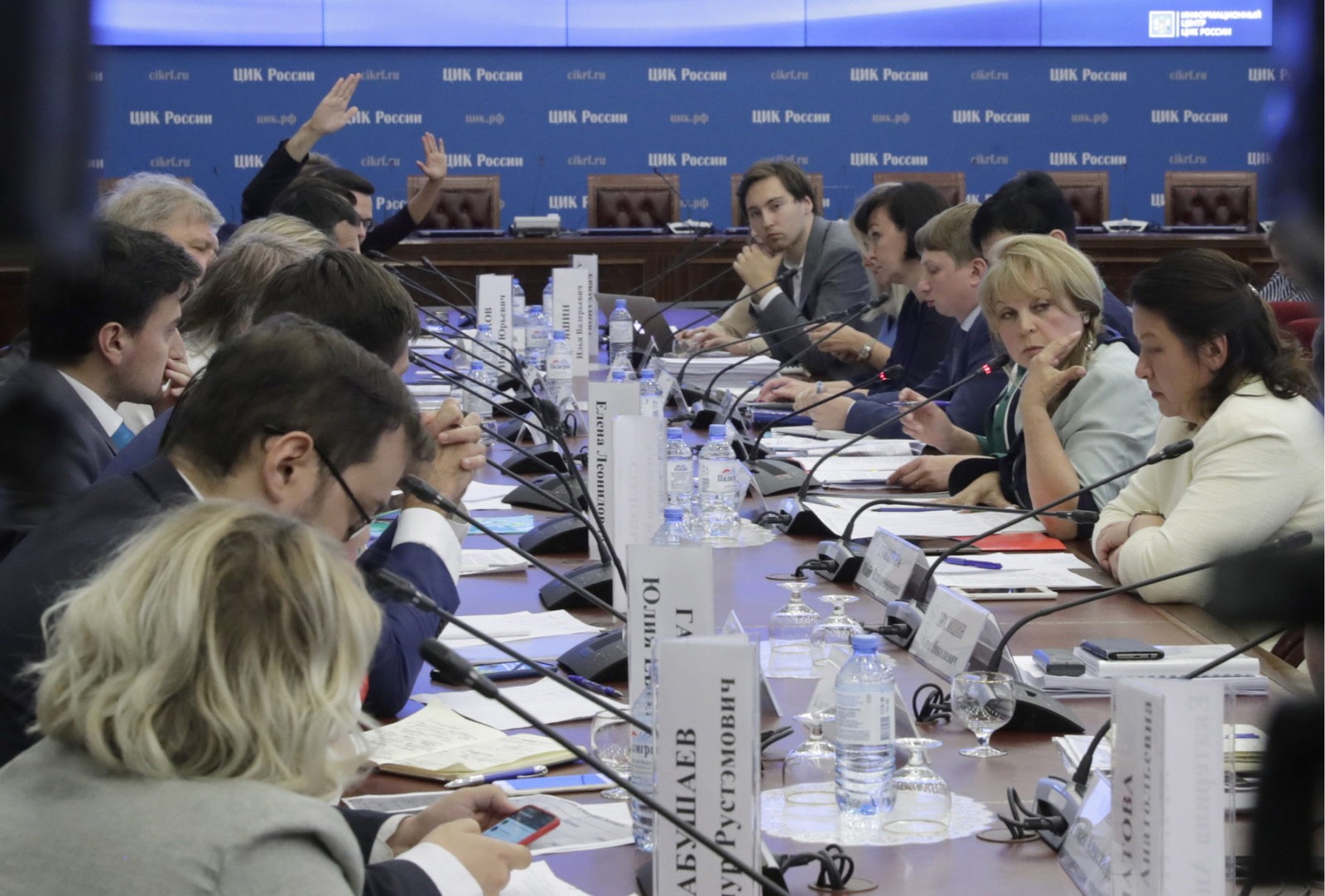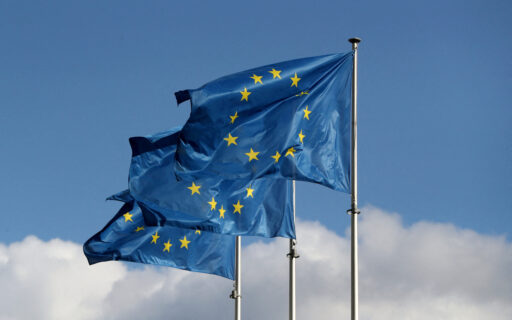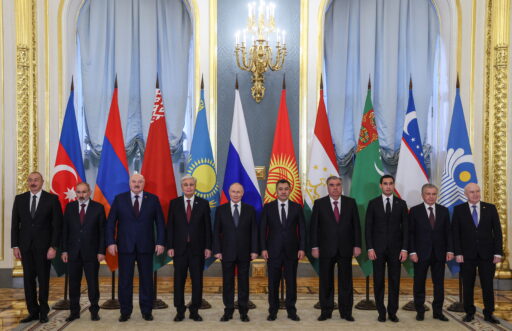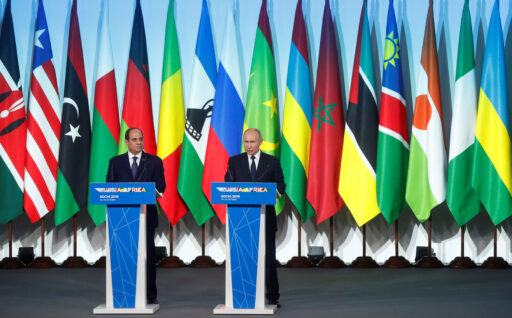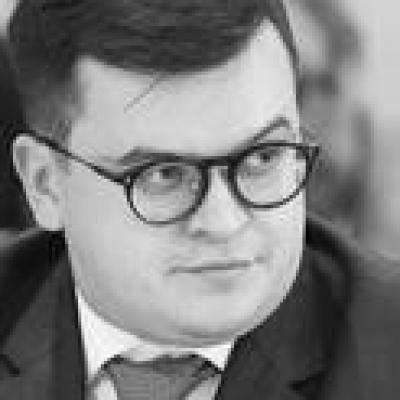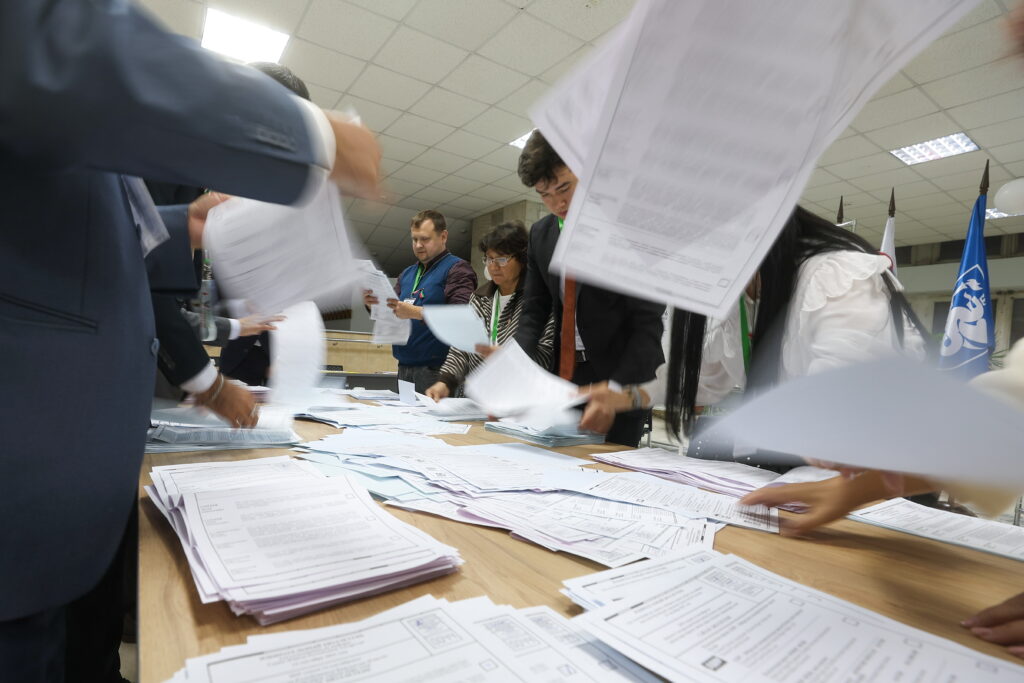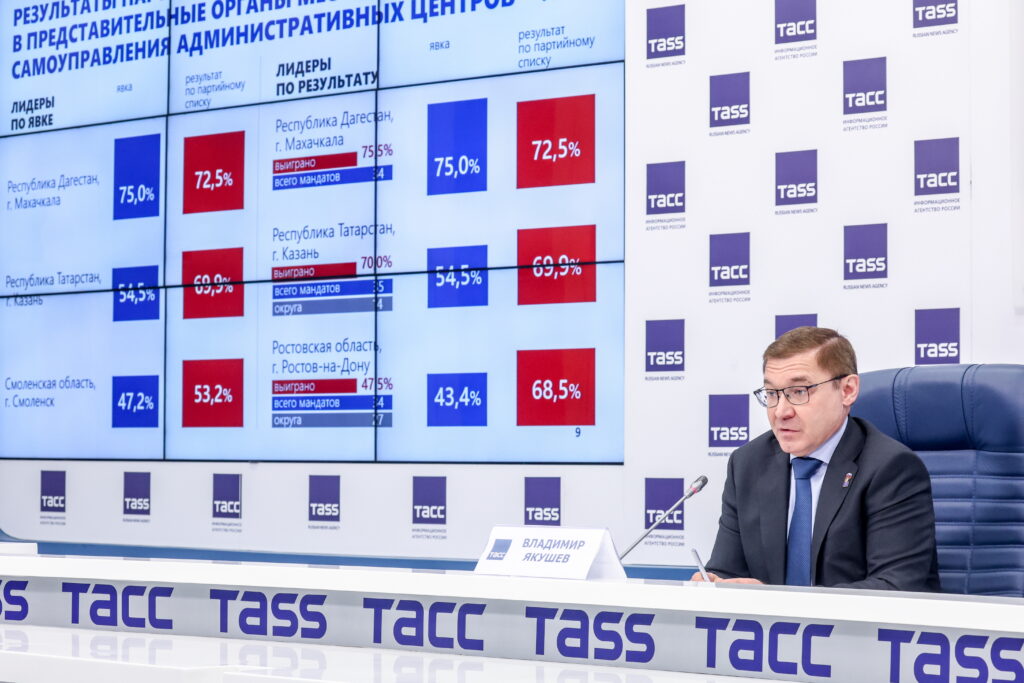On 23 July, a meeting was held at Russia’s Central Electoral Commission. It was tense, and for good reason; the Russian capital is up in arms after several independent opposition politicians were barred from running in elections for the Moscow City Duma. Several days before the meeting, a demonstration was held on Moscow’s Sakharov Avenue which was attended by over 20,000 people. The protesters’ main demand was that the electoral commission register opposition candidates; they also resolved to attend an unsanctioned protest outside the Moscow mayoralty on 27 July.
Supporters of the Russian authorities claim that their opponents presented “fake” signatures (independent candidates for local elections must collect a certain number of signatures from locals in order to contest elections — ed.), that they are too incompetent to hold the office, and that they are deceiving the electoral commission and their fellow citizens. The authorities themselves have responded to protesters’ demands with a wave of repressions targeted at protest leaders Alexey Navalny, Dmitry Gudkov, and Ivan Zhdanov. Police conducted night-time searches of their homes and detained the three men, before filing a charges against them on the basis of Article 141 of Russia’s Criminal Code (on “obstructing the realisation of voting rights or the work of electoral commissions”).
Furthermore, both unregistered candidates and public supporters of the state rely on patchy and anecdotal evidence in support of their positions concerning the case. For example, Ilya Remeslo, a member of the Civic Chamber, spoke at a press conference of more than 50 “dead souls” discovered among the signatures collected by opposition candidates (the term commonly refers to dead voters whose names remain on electoral registers and are used to falsify results — ed.) What should be mentioned in all fairness is that these were a small fraction of the thousands of signatures collected. The unregistered candidates, for their part, focus on the particular surnames of a few people who were declared “non-existent” or their signatures declared invalid; but it is understood that many more signatures were “culled.”
Golos, an NGO for defending voters’ rights, has requested that unregistered candidates send the documents they received from the electoral commission confirming their exclusion from the elections, and the candidates’ objections to the decisions if they have them. So far, Golos has only received this information from nine unregistered candidates (Dmitry Gudkov, Ivan Zhdanov, Yulia Galyamina, Andrey Babushkin, Oleg Musatov, Yelena Rusakova, Anastasia Bryukhanova, Lyubov Sobol, and Ilya Yashin.) Nevertheless, a clear picture of the situation has emerged.
The overwhelming majority of signatures in support of these candidates were invalidated for two reasons.
Do you exist?
The first reason is tied to certificates issued by the Centre for Addresses and Reference Work of the Directorate of Migration Affairs of the Main Directorate of the Ministry of the Internal Affairs’ Moscow branch (formerly the Federal Migration Service.) Certificates issued by this government body were used to justify the invalidation of signatures, on the grounds that they contained incomplete or inaccurate passport information about the signatories or those collecting their signatures on the candidates’ behalf. For example, about 400 signatures in support of Dmitry Gudkov were rejected on this basis; more than 500 for Yulia Galyamina, 300 for Lyubov Sobol, and almost 200 for Ilya Yashin.
At the same time, candidates report that they have identified many cases in which electoral commissions sent incorrect data to the Ministry of Internal Affairs for validation. For example, Anastasia Bryukhanova said that many signatures in support of her candidacy were rejected because the Excel spreadsheet into which the electoral committee entered signatories’ passport data converted the data format and replaced the Cyrillic letter “Ё” with “Е” (despite the fact that Russian names spelt with the former are increasingly written using the latter — ed.)
Dmitry Gudkov’s campaign headquarters also reported nearly 100 errors made when entering signatories’ data into the tables to be used for validation. Ivan Zhdanov, a lawyer working with Alexey Navalny’s Anti-Corruption Foundation, found 90, while Lyubov Sobol reported 77 such cases.
In almost all these instances, between 20 and 25 percent of all signatures entered into the databases of the Ministry of Internal Affairs were rejected. This amount is certainly large enough to raise broader questions about the accuracy of the verification process. But the highlight of this story is how these data were presented by the Ministry of Internal Affairs itself.
There are no legislative guidelines on how the Ministry of Internal Affairs must present its certificates. But some rules can nonetheless be found in the protocol to the Agreement on Cooperation between Russia’s Central Electoral Commission and Ministry of Internal Affairs, signed on 2 September 2016. This agreement states that when signatures are invalidated, the Ministry of Internal Affairs must demonstrate the grounds for rejection by providing data on signatories which differs from that provided in the candidates’ lists. This requirement was not met in any of the documents submitted by the ministry and reviewed by Golos. In short, employees of the Ministry of Internal Affairs saw it fit to find fault with the candidates’ signatures while they neglected to fulfil their own obligations.
If higher level electoral commissions or courts were to re-validate all the signatures on the list of passport details which were rejected on this basis, a significant proportion of the lists collected in support of candidates would be legitimate. For example, were this to happen, Ilya Yashin would have enough signatures to become an officially registered candidate. But even this would not be enough for most other independent candidates to re-enter the race; they would need to successfully challenge the second ground for rejecting their registrations.
Irresponsible experts
The second important reason why signatures were “invalidated” was thanks to the conclusions of graphologists, or handwriting experts, working for the Ministry of Internal Affairs’ Expert Criminological Centre. In fact, these handwriting experts can reject almost any signature they please. They can even recognise the signature itself as valid, but reject it on the basis that the accompanying date was filled out by another person (the law states that the voter must fill out the date and signature themselves.)
The law also states that the graphologist can neither be held accountable for their “expertise,” nor must justify their rulings. These rulings are generally hard to reach, given that confirming the validity of someone’s signature with any validity requires access to a large amount of their handwriting and a no less plentiful amount of time to analyse it. However, in Russia’s current realities it is extremely difficult to challenge such “expert opinions;” often, electoral commissions and courts even refuse to take into account statements and sworn affidavits by voters themselves confirming that these signatures are their own. Even those confirmations are difficult to collect; voters who supported the candidate might be away on holiday or might not want to open their door to campaigners a second time. They may not want the additional headache of appealing to the electoral commission or court, or simply be wary of handing over a copy of their passport to complete strangers.
Notwithstanding these difficulties, many candidates have still tried to collect such statements from voters, confirming that their signatures were their own and that they had indeed given it in support of opposition candidates. At the end of last week, Ilya Yashin stated that he had collected 140 such statements, Lyubov Sobol about 72, Ivan Gudkov about 7, and Dmitry Gudkov about 160. Gennady Gudkov, father of Dmitry and a former opposition parliamentarian, stated that the graphologists had rejected his signature, which he had given in support of Ilya Yashin’s candidacy.
The truth lies in voters’ hands
There are now enough grounds to discredit the graphologists’ assessments of the signatures, although the final count of their mistakes is still unknown. However, the number of signatures which are genuinely problematic is also unknown; after all, several “dead souls” were nonetheless discovered in the candidates’ lists.
It is important to note here that sending one’s “agents” or even “saboteurs” to a competitor’s headquarters to spoil their signature lists is a well-established ploy in Russian politics. Candidates themselves admit that the percentage of false signatures in their lists may well be quite high. For example, Yulia Galyamina wrote on Facebook that she suspected this might be the case with eight or nine percent of her signatures. Taking into account Galyamina’s self-interest, we can assume that the amount might be closer to ten percent. When it comes to other candidates, a similar picture emerges; some of them are far from eager to show all their documents to independent observers.
Whether all the above really bears a relationship to the matter at hand is another question. It is obvious that most independent opposition candidates who are now protesting really did make great efforts to collect as many genuine signatures as they could; in any case, far more than “loyal” candidates favoured by the authorities ever managed to. But most importantly, given the complete and well-earned mistrust towards the process of verifying the signatures, only Russia’s voters themselves can be the final arbiters.
That is why all candidates who are fighting against the electoral commission’s refusal to register them must now be allowed to run in the elections: not only Yashin, Mitrokhin, Rusakov, and Sobol, but also Irina Sobyanina and Dmitry Bulykin. This can be done without going beyond the existing legal framework; when its decisions are appealed, the electoral commission is permitted to question the opinions of the handwriting “experts” provided by the Ministry of Internal Affairs.
The lesson here is that the mechanism for registering candidates for elections needs to be radically overhauled. There must be new methods for returning electoral deposits and a way of support the nomination of candidates through public services portals, among other revisions. Nonetheless, it is more doubtful that the political will exists to do so: those who take the decisions certainly realise that signature verification is a perfect tool for eliminating objectionable politicians from elections. This appears to be the case not only in Moscow, but much further afield. One need only look to Irkutsk in the run-up to elections to the city Duma; the same story is unfolding there at this very moment.
